An End has a Start
On March 24, 2025, the Circular TwAIn and RE4DY projects hosted their final event, titled "Data, AI and Digital Twin Convergence for Efficient and Sustainable Manufacturing" at SPARKS in Brussels, back-to-back with the EFFRA General Assembly. This event marked the culmination of both projects, showcasing their achievements and discussing the future of digital manufacturing.
Welcome and Opening Remarks
The event began with a warm welcome from the organisation team, followed by a series of opening speeches. Željko Pazin from EFFRA, Philip Piatkiewicz from ADRA, and Rositsa Georgieva, the Circular TwAIn Project Officer from HaDEA, set the stage by highlighting the importance of AI, data spaces, and digital twins in driving sustainable manufacturing.
Circular TwAIn Session: AI-Driven Circular Manufacturing
Angelo Marguglio, the Circular TwAIn Project Coordinator, introduced the vision for circular manufacturing. He emphasised the project's goal of integrating AI and digital twins to enhance sustainability and circularity in manufacturing processes.
Francisco Marques from UNINOVA discussed how AI-enabled digital twins can facilitate circular manufacturing, while Cinzia Rubattino from Engineering elaborated on the role of data spaces and digital product passports in achieving sustainable manufacturing.
Luca Gentilini from HAIKI Cobat presented a real-world application of Circular TwAIn's pilot case on battery systems, demonstrating the practical benefits of the project's innovations.
Panel Discussion: Driving Circularity Together
The panel discussion, moderated by Sergio Gusmeroli from Politecnico di Milano, focused on AI, data spaces, and digital product passports. The panellists included Anibal Reñones Dominguez (CARTIF), representing the s-X-AIPI project, Ezgi Sanli (TEKNOPAR), Javier Romojaro (RECYCLIA), and Ignacio Montero Castro (AIMEN).
Key points from the panel discussion included:
Disruptive AI Technologies: The audience identified digital twins, machine learning, and synthetic data generation as the most disruptive AI technologies for manufacturing.
EU AI Initiatives: Data spaces for manufacturing and AI skills academies were ranked as the most relevant initiatives for the sector.
Opportunities for Circular Economy: The discussion highlighted the importance of ecodesign, regulation compliance, and product lifetime extension in implementing circular economy practices.
RE4DY Session: Edge-to-Cloud Continuum Data Sharing
Elena Angiolini from HADEA introduced the RE4DY session, followed by Óscar Lázaro from Innovalia Association, who presented the RE4DY vision for digital manufacturing networks. Riccardo Zanetti from Engineering Ing. Inf. showcased the RE4DY toolkit, which supports data sharing and simulation in Industry 4.0.
A panel discussion on sovereign data sharing in resilient manufacturing, moderated by Óscar Lázaro, featured insights from Tervel Bobev (KU Leuven), Michela Magas (ICF), Arpita Chari (CHALMERS), and Sergio Gusmeroli (POLIMI).
Technical Presentations
The event concluded with technical presentations on collaborative ecosystem integrated machine tool performance self-optimisation by Roberto Pérez (GF+) and cooperative multi-plant turbine production with predictive quality chains by Matteo Buscicchio (AVIO AERO).
This event provided a comprehensive overview of the Circular TwAIn and RE4DY projects, highlighting their contributions to sustainable and efficient manufacturing through the integration of AI, data spaces, and digital twins. The discussions and presentations underscored the potential of these technologies to transform the manufacturing industry and promote circular economy practices.
Written by: Cinzia Rubattino, ENGINEERING






